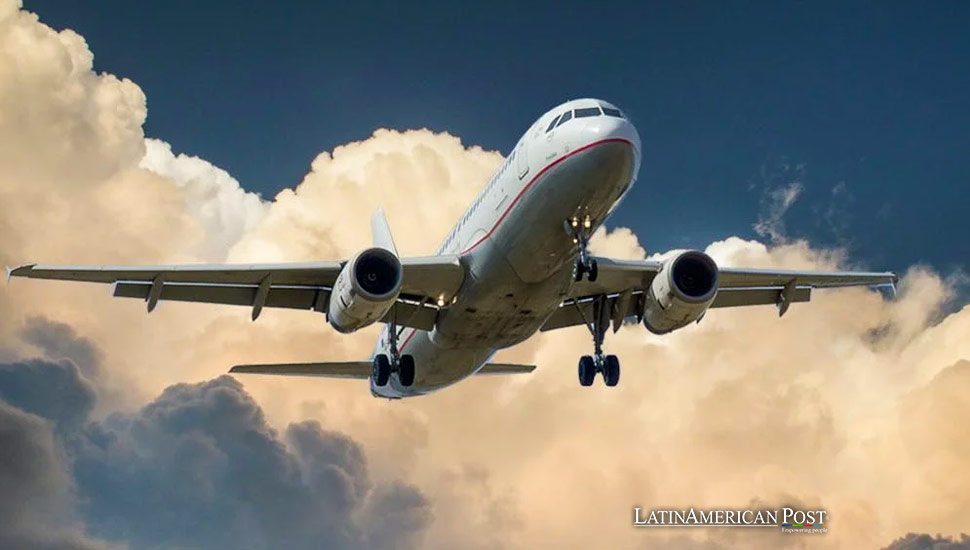Brazilian Airlines Azul and Gol Form Codeshare Agreement Amid Speculation

Brazilian airlines Azul and Gol have announced a new codeshare agreement covering all domestic routes and frequent flyer programs, sparking speculation about a potential merger and its implications for the aviation market.
In a significant development for Brazil’s aviation industry, airlines Azul and Gol have informed the country’s antitrust regulator, CADE, about their new codeshare agreement. This partnership, unveiled last week, aims to cover all domestic routes operated by one airline but not the other, along with their frequent flyer programs. With both carriers holding roughly 30% of the domestic market share each, the agreement has reignited speculation about a possible merger, which would require antitrust approval.
The codeshare agreement allows Azul and Gol to sell seats on each other’s flights, expanding their reach and offering customers more travel options. Such contracts do not typically require antitrust clearance in Brazil. However, concerns about market concentration have led some to suggest that the watchdog should investigate the matter.
The new arrangement is seen as a strategic move, particularly in light of the challenges facing Gol, which filed for bankruptcy protection in the United States earlier this year due to heavy debt and delays in aircraft deliveries from Boeing.
Brazil’s aviation market has seen substantial changes over the years. The emergence of low-cost carriers like Gol in the early 2000s democratized air travel in the country, making it more accessible to a broader population. Gol’s business model focused on major urban centers such as São Paulo, Rio de Janeiro, and Brasília. At the same time, Azul, founded in 2008, built its network around underserved routes, connecting smaller cities to major hubs.
This complementary network structure is a crucial reason behind the current codeshare agreement. Azul operates alone on over 80% of its routes, making it a critical player in connecting Brazil’s vast and diverse geography. By partnering with Gol, Azul can offer its passengers more direct flights to major cities, enhancing convenience and travel options.
Speculation of a Potential Merger
The codeshare agreement has sparked renewed speculation about a possible merger between Azul and Gol. Such a merger would create a dominant player in Brazil’s aviation market, potentially raising concerns about competition and market concentration. Azul has been in talks with Gol’s parent company, Abra Group, to explore various opportunities, though no formal merger plans have been announced.
John Rodgerson hinted at the strategic nature of the talks, stating, “We are always exploring opportunities that can benefit our customers and shareholders.” While the codeshare agreement does not equate to a merger, it could be a step toward deeper collaboration or consolidation.
The COVID-19 pandemic profoundly impacted the global aviation industry, and Brazil was no exception. Travel restrictions and reduced passenger demand led to significant financial losses for airlines. In 2020, Azul entered a similar codeshare agreement with LATAM Airlines to navigate the crisis. However, that partnership dissolved the following year when Azul’s bid to combine with the Chile-based carrier was unsuccessful.
The new deal with Gol comes as the aviation industry shows signs of recovery. Brazilian airlines have reported strong demand this year, with Azul raising its core earnings estimates in March, citing improving fuel prices and capacity growth. The airline plans to add two to three aircraft per month from June until the end of the year, primarily Embraer models, indicating confidence in continued demand growth.
Latin American Aviation Market: A Broader Perspective
The developments between Azul and Gol are part of broader trends in the Latin American aviation market. Historically, the region has faced unique challenges, including economic volatility, regulatory constraints, and infrastructure limitations. Despite these hurdles, Latin America’s aviation sector has shown resilience and adaptability.
In recent years, the rise of low-cost carriers and increased competition have driven growth and innovation. Countries like Brazil and Mexico have seen significant expansions in their domestic and international air travel markets. However, the pandemic highlighted the sector’s vulnerabilities, prompting airlines to seek new strategies for survival and growth.
The potential merger between Azul and Gol would be subject to rigorous scrutiny by antitrust authorities. CADE’s role would be to ensure that such consolidation does not lead to unfair market practices or harm consumer interests. Given the size and significance of both airlines in Brazil’s domestic market, any merger would have far-reaching implications.
Regulators would likely assess the impact on competition, pricing, service quality, and market access. At the same time, the codeshare agreement is a step towards greater collaboration; a complete merger would require demonstrating that the benefits outweigh potential downsides, such as reduced competition or higher fares.
Future Prospects and Strategic Importance
Azul and Gol’s codeshare agreement represents a strategic maneuver to strengthen their market positions and enhance service offerings. By leveraging each other’s networks, the airlines can provide more comprehensive coverage, streamline operations, and improve customer experiences.
As the aviation industry recovers from the pandemic, such collaborations could become more common. Airlines are increasingly looking for ways to optimize operations, reduce costs, and better serve customers. For Azul and Gol, the partnership is a way to navigate the current economic landscape while positioning themselves for future growth.
The codeshare agreement between Azul and Gol marks a significant development in Brazil’s aviation industry. It highlights the strategic moves airlines are making to adapt to changing market conditions. While it has reignited speculation about a potential merger, the focus remains on enhancing travel options and operational efficiency.
Also read: Brazilian Court Denies X’s Request to Exempt Subsidiary from Legal Responsibility
As Brazil’s aviation market continues to evolve, regulatory authorities will play a crucial role in ensuring fair competition and protecting consumer interests. The outcome of this partnership could set a precedent for future collaborations in the region, shaping the landscape of Latin American aviation.




